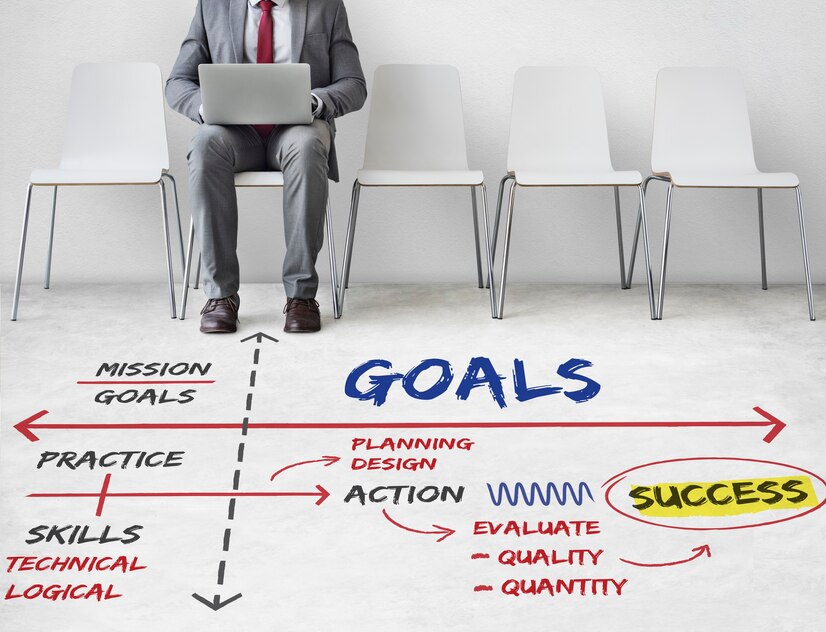In this contemporary professional world, having a clear career development plan is essential. It’s your roadmap, guiding you toward your goals and helping you navigate the twists and turns of your professional journey. Whether you’re just starting out or looking to pivot in your career, setting specific goals can make all the difference.
A career development plan is a structured roadmap that outlines your career goals and the steps needed to achieve them. It helps you identify where you are now, where you want to be, and how to bridge the gap between the two.
Why a Career Development Plan?
A career development plan gives you direction. It helps you identify what you want to achieve and how to get there. Think of it as a GPS for your career. Without it, you might find yourself lost or going in circles.
Having a plan can also boost your confidence. When you set clear goals, you have something tangible to work towards. This makes it easier to measure your progress. Plus, it helps you stay focused, even when challenges arise. Here are some steps to guide you.
Step 1: Self- Assessment

The first step in creating a career development plan is self-assessment. Take some time to reflect on your strengths, weaknesses, interests, and values. Ask yourself:
What am I passionate about?
What skills do I have?
What areas do I need to improve?
Consider using tools like personality assessments or skill inventories. These can provide valuable insights and help you identify the career paths that align with your strengths.
Step 2: Set SMART Goals

Once you have a clearer picture of yourself, it’s time to set goals. Use the SMART criteria to make your goals Specific, Measurable, Achievable, Relevant, and Time-bound.
For example:
- Specific: Instead of saying, “I want to be successful,” say, “I want to earn a promotion to a management position.”
- Measurable: Determine how you will measure your progress. This could be through achieving certain performance metrics or completing a training program.
- Achievable: Ensure your goals are realistic. If you’re aiming for a management role, consider if you have the necessary experience or if you need additional training.
- Relevant: Your goals should align with your long-term career aspirations. Make sure they fit into the bigger picture of what you want to achieve.
- Time-bound: Set a deadline for achieving your goals. This creates a sense of urgency and helps you stay on track.
Step 3: Identify Resources

To reach your goals, you’ll need resources. These can include educational programs, training workshops, or mentorship opportunities. Look for online courses, local classes, or networking events in your field.
Don’t forget about the power of mentorship. Finding a mentor can provide guidance and support as you navigate your career path. They can share their experiences and offer advice that can help you avoid common pitfalls.
Step 4: Create an Action Plan

An action plan breaks down your goals into manageable steps. List out what you need to do to achieve each goal. For instance, if your goal is to earn a promotion, your action steps might include:
i) Completing a leadership training program.
ii) Seeking feedback from your manager on areas for improvement.
iii) Networking with professionals in your desired role.
Make sure to set deadlines for each action step. This keeps you accountable and ensures you’re making progress.
Step 5: Monitor Your Progress

Regularly review your career development plan. Check in on your goals and assess whether you’re on track. If you find you’re falling behind, adjust your action steps or set new goals.
Celebrate your achievements, no matter how small. Recognizing your progress can boost your motivation and keep you moving forward.
Step 6: Seek Professional Guidance

Creating a career development plan can feel overwhelming, especially if you’re unsure of where to start. This is where professional career coaching services can help. A career coach can provide personalized guidance tailored to your specific goals. They can help you assess your strengths, set realistic goals, and develop an actionable plan.
A coach can also offer accountability and support. They’ll help you stay focused and motivated, ensuring you’re making progress toward your career aspirations.
Investing in a career coach is an investment in your future. With their expertise, you’ll have the tools and strategies you need to navigate your career path confidently.
Final Thoughts
Creating a career development plan is essential for achieving your professional goals. By taking the time to assess yourself, set SMART goals, identify resources, create an action plan, and monitor your progress, you can take control of your career.
Don’t hesitate to seek professional guidance if you need it. A career coach can be a valuable ally on your journey. With the right plan in place, you’ll be well on your way to achieving the career you desire.
Remember, your career is a journey, not a destination. Keep evolving, learning, and growing. The future is bright, and it’s waiting for you to take the first step.









